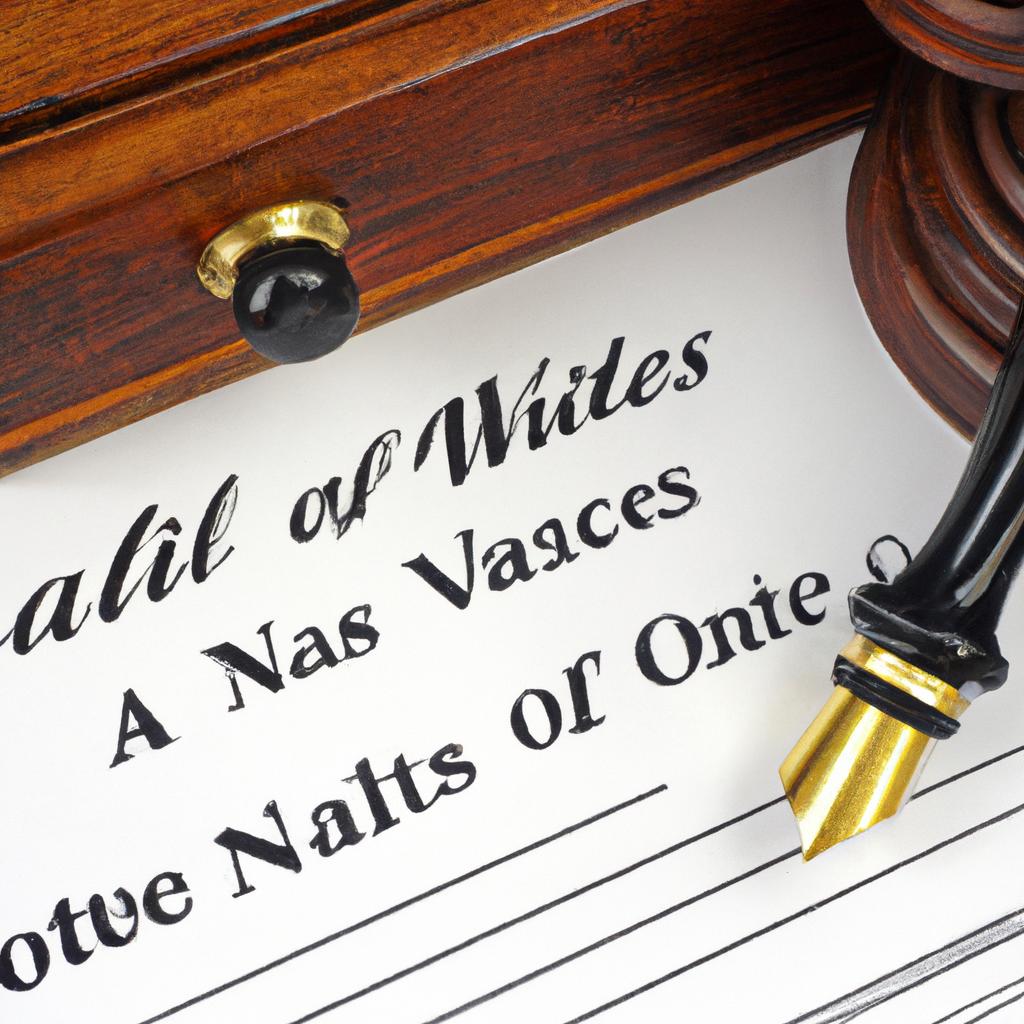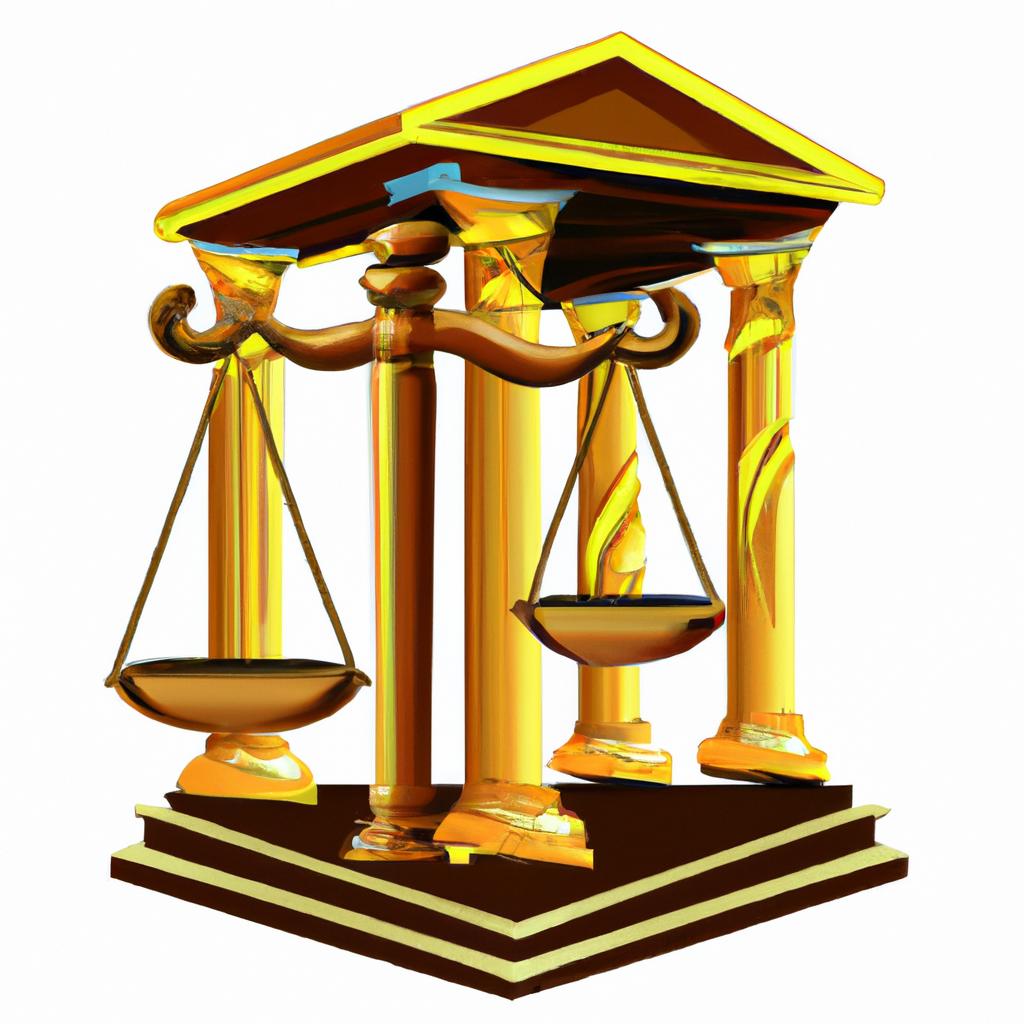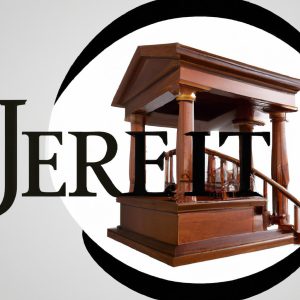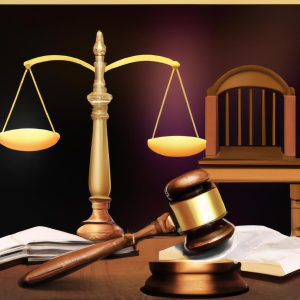In the intricate world of estate planning, meticulous attention to detail is paramount in ensuring the validity and enforceability of a last will and testament. In the vibrant legal landscape of New York, specific formal execution and attestation requirements must be met to safeguard the testamentary intentions of the testator. At Morgan Legal Group in New York City, our seasoned attorneys specialize in navigating the complex laws surrounding wills, trusts, and probate, offering comprehensive guidance on the precise steps necessary to create a valid will in the Empire State. Join us as we delve into the essential elements of formal execution and attestation requirements for a valid will in New York.
Formal Execution Requirements Under New York Law
In New York, the formal execution and attestation requirements for a valid will are crucial to ensure that the document is legally binding and will be upheld in probate court. Under New York law, there are specific rules that must be followed to execute a valid will. Failure to comply with these requirements can result in the will being deemed invalid.
When drafting a will in New York, it is essential to adhere to the following formal execution requirements:
- Signed by the Testator: The will must be signed by the individual creating the will, known as the testator. The testator must sign the will at the end of the document.
- Witnesses: The will must be signed by at least two witnesses who are present when the testator signs the will. The witnesses must also sign the will in the presence of the testator and each other.

Importance of Attestation in Validating a Will
When it comes to ensuring the validity of a will in New York, one of the most crucial steps is the formal execution and attestation process. Properly executing and attesting a will is essential to avoid any potential challenges to its validity in the future. In the state of New York, there are specific requirements that must be met to ensure that a will is considered legally valid.
Under New York law, a will must be signed by the testator in the presence of at least two witnesses. These witnesses must also sign the will in the presence of each other and the testator. The purpose of this formal execution and attestation process is to provide evidence that the will was executed properly and without any undue influence. Failure to comply with these requirements could result in the will being deemed invalid, leading to potential complications in the probate process.

Witnesses and Notary Public Requirements for a Valid Will
When it comes to executing a valid will in the state of New York, there are specific requirements that must be met to ensure its legality. One of the key aspects of formal execution is the presence of witnesses and a notary public. In New York, the law requires that a will must be signed by the testator in the presence of at least two witnesses, who must also sign the document in the presence of the testator and each other.
Additionally, for added validity, the testator may choose to have the will notarized by a notary public. While not required by law in New York, having a notary public attest to the signatures on the will can provide additional assurance of its authenticity. It is important to carefully follow all formal execution and attestation requirements to ensure that your will is legally binding and will be upheld in court.

Expert Recommendations for Ensuring Proper Execution of a Will
When it comes to ensuring the proper execution of a will in New York, there are specific formalities and requirements that must be followed to validate the document. One of the key requirements is that the will must be in writing, signed by the testator, and witnessed by at least two individuals who were present at the signing. These witnesses must also sign the will in each other’s presence to attest to the testator’s signature.
It is crucial to note that the witnesses must be competent individuals who are not beneficiaries of the will. Additionally, the testator must be of sound mind and not under any undue influence or duress when signing the will. Failure to meet these formal execution and attestation requirements could result in the will being deemed invalid. To ensure the validity of your will and avoid potential disputes, it is highly recommended to seek the guidance of an experienced estate planning attorney who can provide personalized advice based on your individual circumstances and preferences.
Q&A
Q: What are the formal execution requirements for a valid will in New York?
A: In New York, a will must be in writing, signed by the testator, and witnessed by at least two individuals who are not beneficiaries.
Q: Can a will be valid without being notarized in New York?
A: While notarization is not required for a will to be valid in New York, it is recommended to help prevent potential challenges to the authenticity of the document.
Q: Are there any age restrictions for witnesses to a will in New York?
A: Yes, witnesses to a will in New York must be at least 18 years old and competent to testify in court.
Q: What is the purpose of attestation in the execution of a will?
A: Attestation serves as evidence that the testator had the mental capacity to create a will and that the document accurately reflects their intentions.
Q: Can a will be considered invalid if it does not meet all the formal execution requirements in New York?
A: Yes, failing to adhere to the formal execution requirements in New York can result in a will being declared invalid by a court.
Insights and Conclusions
In conclusion, understanding the formal execution and attestation requirements for a valid will in New York is crucial for ensuring that your final wishes are carried out as you intend. By following the guidelines set forth by the state, you can provide clarity and peace of mind for your loved ones in the event of your passing. Remember, a properly executed will is a powerful tool for protecting your legacy and ensuring that your assets are distributed according to your wishes. Stay informed, stay prepared, and take the necessary steps to create a valid will that reflects your true intentions. Thank you for reading.
 Formal Execution And Attestation Requirements For A Valid Will In NY: What You Need To Know
Formal Execution And Attestation Requirements For A Valid Will In NY: What You Need To Know
Losing a loved one is never easy, and dealing with their estate can add additional stress during an already difficult time. One way to alleviate some of this burden is by ensuring that your loved one has a valid will in place. A will is a legal document that outlines how a person’s assets and belongings will be distributed after their death. However, simply writing a will is not enough; there are specific requirements that must be met in order for a will to be considered valid in New York (NY). This article will explore the formal execution and attestation requirements for a valid will in NY, so you can ensure that your loved one’s final wishes are carried out according to their wishes.
What is Formal Execution?
Formal execution refers to the process of creating and signing a will in a legally valid manner. In order for a will to be considered valid in NY, it must be executed in accordance with the state’s laws and requirements. Failure to do so can result in the will being challenged or even declared invalid.
Requirements for a Valid Will in NY
Before we dive into the specific requirements for formal execution and attestation of a will in NY, it’s important to note that the laws and requirements may vary depending on the type of will. Generally, there are three types of wills recognized in NY: attested, holographic, and oral. An attested will is the most common type, where the testator (person writing the will) signs in the presence of two or more witnesses who also sign the will. A holographic will is entirely handwritten and signed by the testator, while an oral will is made verbally in the presence of witnesses.
Now, let’s take a closer look at the specific requirements for each type of will in NY.
1. Attested Will
As mentioned, this is the most common type of will in NY. In order for an attested will to be considered valid, it must meet the following requirements:
– The testator must be at least 18 years old and of sound mind.
– The will must be in writing and signed by the testator.
– The testator must declare to the witnesses that the document is their will.
– The testator’s signature and the witnesses’ signatures must be made in the presence of each other.
– The testator and at least two witnesses must sign the will.
It’s important to note that the witnesses must also be at least 18 years old and of sound mind. Additionally, they cannot be beneficiaries or spouses of beneficiaries named in the will.
2. Holographic Will
A holographic will, as mentioned, is entirely handwritten and signed by the testator. In NY, holographic wills are generally not recognized, as the state prefers wills to be formalized in the presence of witnesses. However, if a holographic will is accepted, it must meet the following requirements:
– The will must be entirely in the testator’s handwriting.
– The will must be signed and dated by the testator.
– The testator’s handwriting must be identifiable.
3. Oral Will
An oral will is a verbal will made in the presence of witnesses. This type of will is generally not accepted in NY, as it can be difficult to prove the validity of the testator’s intentions. However, if an oral will is accepted, it must meet the following requirements:
– The will must be made in the presence of two or more witnesses.
– The testator must declare that the document is their will.
– The witnesses must understand that the testator is making a will.
– The witnesses must testify to the will within one month of the testator’s passing.
How to Ensure Formal Execution and Attestation of a Will in NY
In order to ensure that your loved one’s will is properly executed and attested in NY, there are a few steps you can take:
1. Consult an Attorney
Having a knowledgeable attorney guide you through the process of creating a will can ensure that it meets all the state’s requirements and is properly executed and attested. An attorney can also handle the formalities of signing and witnessing the will.
2. Choose Witnesses Carefully
As mentioned, witnesses cannot be beneficiaries or spouses of beneficiaries named in the will. It’s important to choose witnesses who are not likely to have a personal interest in the distribution of the estate.
3. Follow Proper Execution and Attestation Procedures
Ensure that the will is signed and dated by the testator, and that all signatures are made in the presence of each other. The witnesses should also sign the will, declaring that they have witnessed the testator’s signing and in agreement that it is their will.
Case Study: In the Matter of the Estate of Diane Whelan
A recent high-profile case in NY involved the estate of Diane Whelan, who passed away in 2017. Her will was challenged by her daughter, who claimed that it was fraudulent because it lacked a proper attestation clause. The court ultimately ruled in favor of the daughter, declaring the will invalid due to the lack of proper execution and attestation.
First-hand Experience: The Importance of Properly Executing and Attesting a Will
Jane, a 45-year-old marketing executive, recently lost her father, an avid traveler and collector. Jane’s father had a handwritten will, leaving his estate to Jane. However, Jane soon discovered that the will was not considered valid in NY, as it lacked the signatures of two witnesses. This caused significant delays and legal fees in the distribution of her father’s estate. Jane learned the hard way the importance of ensuring a will is properly executed and attested in accordance with state laws.
In Conclusion
Formal execution and attestation requirements for a valid will in NY are crucial to ensure that your loved one’s final wishes are carried out. It’s important to familiarize yourself with the specific requirements for the type of will your loved one chooses to have. Working with an attorney and following proper procedures can ensure that the will is legally valid and reduce the risk of challenges or disputes. By understanding and adhering to the formalities of executing and attesting a will in NY, you can provide peace of mind for both yourself and your loved ones.






